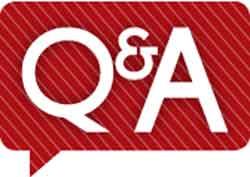21 Nov 2024 - {{hitsCtrl.values.hits}}

 India-based HRV Global Life Sciences and New Horizon Global Pharma is eyeing for a potential expansion into Sri Lanka, positioning it as a key growth market in South Asia. HRV Global Life Sciences CEO, Hari Kiran Chereddi recently shared with Mirror Business the company’s strategic vision for potential expansion into Sri Lanka, how it could support Sri Lanka’s ambitions to become self sufficient in pharma production while also underscoring the role of Fourth Industrial Revolution (4IR) technologies in transforming pharmaceutical production and supply chain. HRV Global Life Sciences & New Horizon Global Pharma is a leading manufacturer, seller & market expansion company for a wide range of Active Pharmaceutical Ingredients, Advanced Pharma Intermediates, Pellets, Food Grade Chemicals, Food Additives and Food Ingredients across the world. In particular, Chereddi pointed to HRV Global’s success with these technologies in other markets, suggesting they could be applied in Sri Lanka to improve transparency, optimize inventory, and elevate the local industry to global standards. Looking to the future, HRV Global envisions a mutually beneficial collaboration with Sri Lanka, one that could stimulate economic growth and improve healthcare access. This could also support positioning the country as a regional hub for pharmaceuticals.
India-based HRV Global Life Sciences and New Horizon Global Pharma is eyeing for a potential expansion into Sri Lanka, positioning it as a key growth market in South Asia. HRV Global Life Sciences CEO, Hari Kiran Chereddi recently shared with Mirror Business the company’s strategic vision for potential expansion into Sri Lanka, how it could support Sri Lanka’s ambitions to become self sufficient in pharma production while also underscoring the role of Fourth Industrial Revolution (4IR) technologies in transforming pharmaceutical production and supply chain. HRV Global Life Sciences & New Horizon Global Pharma is a leading manufacturer, seller & market expansion company for a wide range of Active Pharmaceutical Ingredients, Advanced Pharma Intermediates, Pellets, Food Grade Chemicals, Food Additives and Food Ingredients across the world. In particular, Chereddi pointed to HRV Global’s success with these technologies in other markets, suggesting they could be applied in Sri Lanka to improve transparency, optimize inventory, and elevate the local industry to global standards. Looking to the future, HRV Global envisions a mutually beneficial collaboration with Sri Lanka, one that could stimulate economic growth and improve healthcare access. This could also support positioning the country as a regional hub for pharmaceuticals.
Following are the excerpts of the interview:
 Q:Given that HRV Global Life Sciences operates extensively across South Asia, can you provide insights into any current or planned activities in the Sri Lankan market? What economic factors make this market attractive for HRV Global?
Q:Given that HRV Global Life Sciences operates extensively across South Asia, can you provide insights into any current or planned activities in the Sri Lankan market? What economic factors make this market attractive for HRV Global?
HRV Global LifeSciences is India’s first virtual API (Active Pharmaceutical Ingredient) firm and the fastest market expansion company. From our home base in Hyderabad, Telengana state, we have so far expanded to 5 other global locations – Switzerland, Lithuania, UAE, Türkiye & USA. We are keen on looking at opportunities in our neighbuorhood, and we are examining the Sri Lankan market too.
Sri Lanka is attractive for pharmaceutical suppliers for several reasons:
Q:With Sri Lanka’s ambitious goal to increase local pharmaceutical production and become self-sufficient, what economic impact do you foresee for the industry, and how can HRV Global support this transition through cost-effective sourcing and technology transfer?
Addressing these challenges requires coordinated efforts from the government, private sector, and international partners. HRV Global LifeSciences could potentially support this transformation through contributing to a sufficient supply chain, sourcing and training talent from pharma, and by sealing partnerships with local research and development firms. HRV Global can also help Sri Lankan firms to reach out to the lucrative Indian market.
We anticipate that once political stability is restored in the country, the pharmaceutical and healthcare sector will be on top of the agenda of any government.
Q:Sri Lanka’s drive to boost local pharma manufacturing aims to save foreign exchange and reduce imports. How does HRV Global’s approach to sourcing and supply chain optimization align with these economic priorities?
Whilst we can’t speak for the Sri Lankan market from our perspective as we have not entered the market (as yet), at HRV Global we embrace supply chain challenges thanks to our global network. We believe that Open & Technology backed-up trade routes are vital to secure pharmaceutical supply for all. We run global operations through its hubs in India, United Arab Emirates (UAE), Türkiye, Switzerland, and the U.S.
Q:The public procurement process in Sri Lanka plays a significant role in the pharmaceutical sector. What are your views on the regulatory landscape, and how does it impact your strategic decisions in markets such as Sri Lanka?
Sri Lanka should bolster its regulatory landscape to a certain degree. In this regard it can exchange knowledge with its neighbor India and other pharmaceutical hubs like Dubai. Hence, the strategy shall be acquiring knowledge, encouraging learning and upgrading standards, then up- scaling the same.
Q:You’ve highlighted the potential of 4IR technologies in boosting pharmaceutical production in emerging markets. What specific technologies, such as AI, IoT, or automation, do you think can be most impactful for the Sri Lankan pharmaceutical industry?
We consider 4IR as a game change for the pharmaceutical industry, not only in Sri Lanka, but globally. In September, in your country in particular, the Ministry of Technology announced its draft artificial intelligence (AI) national strategy. The draft focuses on strengthening key enablers, data, skills, infrastructure, R&D, public awareness, and accelerating AI utilities. Hence Sri Lanka is on the right track, and many web3 startups provide services not only in the region, but also globally like developing websites for cryptocurrency firms, apps for digital wallets etc.
Also, the ministry of education launched in spring 2024 a scheme to integrate AI into education. No sector will be spared by 4IR, and this includes pharma.
Q:Can you share examples of how 4IR technologies have been applied within HRV Global’s operations in other South Asian markets? What aspects of these technological advancements could be replicated in Sri Lanka to improve the local pharmaceutical sector?
HRV Global’s application of Fourth Industrial Revolution (4IR) technologies in South Asian markets has been pivotal in improving operational efficiency, transparency, and global competitiveness, particularly in complex industries like pharmaceuticals. Here are a few examples of how 4IR technologies have been applied within HRV’s operations, along with their potential relevance for Sri Lanka’s pharmaceutical sector:
Q:Given the current global trends, which emerging areas within pharmaceuticals, such as drug repurposing or personalized medicine, do you see as particularly viable for development in Sri Lanka? How can technology enable these fields?
In this regard, it may be too early for us to comment without knowing the evolving landscape in Sri Lanka.
Q:The Sri Lankan government has identified technological improvements and workforce development as key challenges in scaling local pharmaceutical production. How does HRV Global address these challenges, and do you see the country potentially developing into a regional pharma hub?
Sourcing the best talent we do through our global network.
Q:Are you considering any partnerships with local pharmaceutical companies, research institutions, or healthcare providers in Sri Lanka? What types of collaborations would you prioritize to achieve economic and technological synergies?
Why not? Definitely, this would be an area of great interest for us.
Q:How important are regional partnerships for navigating regulatory frameworks and accessing markets across South Asia? Can you share an example of a successful regional partnership approach that could be applied in Sri Lanka?
We just wrapped up our successful participation at the biggest pharmaceutical fair series CPHI, which took place in early October in Milan, Italy. Partnerships are at the core of our business strategy, whether it is in South Asia, Europe, or the U.S. In relation to regulatory frameworks, we do not engage in lobbyism but in closely monitoring regulatory changes and in adapting to the same.
Q:You have mentioned innovative supply models like Just-In-Time inventory. How do these approaches work in emerging markets such as Sri Lanka to address supply chain challenges, and what economic benefits do they bring?
Just-in-time (JIT) inventory is an inventory management strategy that can be used in the pharmaceutical industry to manage active pharmaceutical ingredients (APIs): JIT involves ordering and receiving products only when they are needed, just before they are to be used. This reduces the amount of inventory that needs to be stored and helps to ensure that supplies are fresh. JIT can help to reduce costs associated with inventory management and can improve efficiency throughout order fulfillment.
JIT inventory and other innovative supply models can be particularly effective in emerging markets, helping to address supply chain challenges while delivering significant economic benefits. Here’s how these approaches work and their advantages:
Demand-Driven Production: JIT focuses on producing goods based on actual demand rather than forecasts. This reduces excess inventory and minimizes storage costs.
Streamlined Processes: These models encourage the optimization of manufacturing and logistics processes, reducing lead times and improving overall efficiency.
Supplier Collaboration: Effective JIT requires strong relationships with suppliers to ensure timely delivery of materials. This fosters collaboration and transparency across the supply chain.
Technology Utilization: Leveraging technology, such as real-time data analytics and inventory management systems, helps companies monitor stock levels and demand patterns, enabling timely decision-making.
Flexibility and Responsiveness: JIT allows businesses to quickly adapt to market changes, consumer preferences, and unexpected disruptions, which is crucial in dynamic emerging markets.
Then there are also economic benefits:
Cost Reduction: By minimizing inventory holding costs and reducing waste, companies can lower operational expenses, leading to improved profitability.
Improved Cash Flow: JIT helps maintain cash flow by reducing capital tied up in unsold inventory, allowing funds to be reinvested in other areas of the business.
Enhanced Quality: With a focus on efficiency and real-time monitoring, companies can improve product quality, leading to higher customer satisfaction and loyalty.
Competitive Advantage: Businesses that implement JIT can respond more quickly to market demands and changes, giving them an edge over competitors who may have slower, more traditional supply chains.
Local Sourcing and Employment: By collaborating with local suppliers, companies can stimulate the local economy, creating jobs and promoting sustainable development.
Reduced Waste and Environmental Impact: JIT models can lead to less waste in production and logistics, contributing to more sustainable business practices and reducing the environmental footprint.
Resilience to Disruptions: A well-implemented JIT system can enhance resilience against supply chain disruptions, allowing businesses to quickly adapt to challenges such as political instability or natural disasters.
While JIT has significant benefits, there are challenges in emerging markets, such as infrastructure limitations, less reliable transportation systems, and varying levels of supplier capability. Therefore, it’s essential for businesses to carefully assess their specific context and possibly combine JIT with other inventory strategies to ensure stability and reliability in their supply chains.
Hence we think that JIT and similar innovative supply models can drive substantial economic benefits in emerging markets, supporting growth and development while addressing unique supply chain challenges.
Q:With increasing demand for affordable medicines in Sri Lanka, how does HRV Global’s cost-effective sourcing model help meet these needs while ensuring quality and regulatory compliance?
There are a few aspects to consider.
Our global supplier network and strategic partnerships. We have been operating with suppliers who are active in a highly regulated market like the U.S. so the high compliance standards are met.
We constantly expand our network. For instance, we just wrapped up our successful participation at CPHI Europe, the important series of pharmaceutical congresses. The three-day fair and exhibition took place in Milan where we ran our own booth and increased again our network.
In the pharma business there is a trial and sample scheme, and the client requests a sample, gets it approved from the respective authorities from their countries before orders or confirming the order. Hence any order that we would receive from Sri Lanka goes through the same procedure.
Our virtual API model for reduced overheads. This means that at HRV Global LifeSciences we do not manufacture APIs but we source from leading manufacturers in India.
Customizable formulations and packaging. Different customers have different packaging requirements in relation to language, design, and legal requirements. This is an important aspect which we also deliver.
Q:With a focus on sourcing and exporting over 400 pharmaceutical products globally, what are the most significant opportunities you see in the Sri Lankan market for HRV Global, especially in terms of economic growth and local demand trends?
In the Sri Lankan pharmaceutical market, HRV Global can explore several significant opportunities:
Growing Healthcare Needs: With a rising population and increasing healthcare awareness, there’s a growing demand for pharmaceuticals, particularly in chronic disease management (e.g., diabetes, hypertension).
Generic Pharmaceuticals: The market for generic drugs is expanding as the government promotes affordable healthcare. HRV Global can focus on high-quality generics to capture this segment.
Biologics and Biosimilars: There’s a shift towards biologics and biosimilars, especially in treatments for cancer and autoimmune diseases. Investing in this area can meet unmet medical needs.
Over-the-Counter (OTC) Products: As consumers become more health-conscious, there’s a growing market for OTC products, including supplements and wellness products. Developing a range of affordable, effective OTC offerings could tap into this trend.
Digital Health Solutions: The integration of technology in healthcare, such as telemedicine and health apps, can enhance service delivery. HRV Global can leverage digital platforms to distribute products and engage with consumers.
Regulatory Environment: The government is focusing on improving regulatory frameworks. Aligning with these initiatives can position HRV Global as a trusted partner in compliance and quality assurance.
Export Potential: There’s potential to export pharmaceutical products to neighboring countries in South Asia and beyond. Establishing strong manufacturing practices can facilitate access to these markets.
Partnerships and Collaborations: Collaborating with local healthcare providers and institutions can enhance market entry and distribution strategies, as well as facilitate clinical trials for new products.
R&D Investment: Investing in research and development to create innovative products tailored to local health issues can differentiate HRV Global from competitors.
Sustainability and Green Pharmaceuticals: There’s a growing focus on sustainable practices. Developing eco-friendly products and processes can appeal to increasingly environmentally conscious consumers.
By aligning with these trends, HRV Global can capitalize on the pharmaceutical market’s growth potential in Sri Lanka, catering to local demand while contributing to improved healthcare outcomes.
Q:What are HRV Global’s long-term goals for expanding its footprint in South Asia, particularly in markets like Sri Lanka, and how does the company plan to navigate the economic and technological landscape to achieve these objectives?
We see this as a key market with growing population and potential for growth, especially in the Sri Lankan market.
03 Dec 2024 43 minute ago
03 Dec 2024 2 hours ago
03 Dec 2024 3 hours ago
03 Dec 2024 3 hours ago
03 Dec 2024 5 hours ago